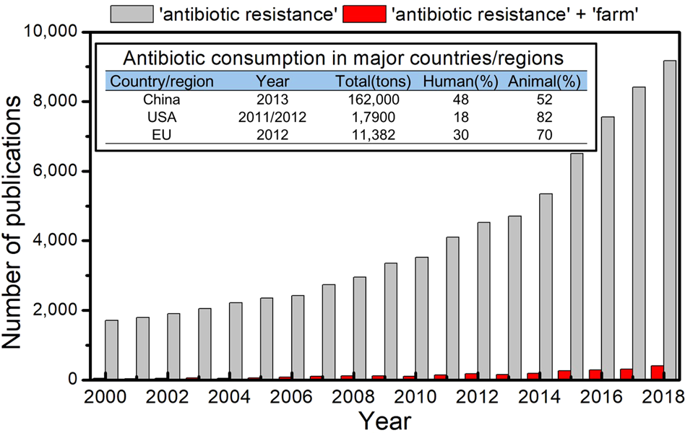npj Clean Water ( IF 11.4 ) Pub Date : 2020-02-19 , DOI: 10.1038/s41545-020-0051-0 Ya He , Qingbin Yuan , Jacques Mathieu , Lauren Stadler , Naomi Senehi , Ruonan Sun , Pedro J. J. Alvarez

|
Antibiotics are widely used in animal husbandry, and various types of antibiotic resistance genes (ARGs) are frequently detected in livestock waste around the world. Conventional livestock waste treatment processes do not completely remove ARGs, resulting in their release to soil and water environments. Various exposure routes of these ARGs to humans, including inhalation and ingestion of antibiotic-resistant bacteria (ARB) that harbor them, may be contributing to the rise in resistant clinical infections that are increasingly difficult to treat with antibiotics. In this review, we assess the occurrence and variability of ARGs in livestock wastes and their potential propagation pathways to human pathogens. We also review the mechanisms and environmental factors that influence the dissemination of ARGs through these pathways, and evaluate the ARG removal efficiency of common livestock waste management approaches. Challenges and research needs for assessing and mitigating the risk of antibiotic resistance dissemination from livestock waste are also presented.
中文翻译:

畜禽粪便中的抗生素抗性基因:发生,传播和治疗
抗生素广泛用于畜牧业,并且在世界各地的牲畜粪便中经常检测到各种类型的抗生素抗性基因(ARG)。常规的牲畜废物处理过程不能完全去除ARG,从而将其释放到土壤和水环境中。这些ARGs暴露于人类的各种途径,包括吸入和摄入含有它们的抗生素抗药性细菌(ARB),可能会导致耐药性临床感染的增加,而这种感染日益难以用抗生素治疗。在这篇综述中,我们评估了畜禽粪便中ARG的发生和变异性以及它们向人类病原体传播的潜在途径。我们还将回顾通过这些途径影响ARG传播的机制和环境因素,并评估常见牲畜废物管理方法的ARG去除效率。还提出了评估和减轻畜禽粪便传播抗生素耐药性风险的挑战和研究需求。

























 京公网安备 11010802027423号
京公网安备 11010802027423号